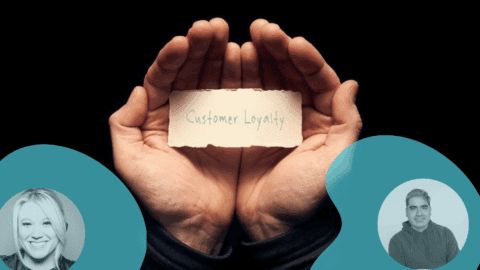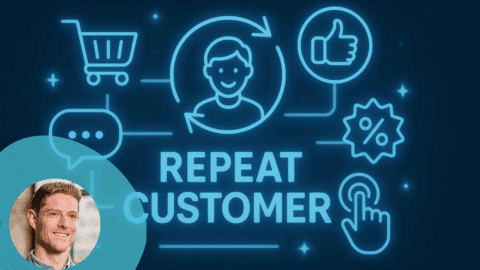As customer shopping patterns and the devices used to research and make purchases continue to transform, the retailer’s ability to segment shoppers and deliver relevant and engaging experiences has never been more important ― nor more possible. Accessible shopper and customer data is key to segmentation, but many consumers are not willing to share it, making today’s essential personalized shopping experience challenging to create.
New insights revealed by Lauren Freedman, president of the e-tailing group, helped unpack this box of challenges. In a recent webinar and white paper, both titled “Nine Steps To Really Knowing Your Customers,” sponsored by MyBuys, Freedman shed light on various approaches to a cohesive CRM strategy. An online survey of more than 1,000 consumers regarding personalization and data sharing, and a subsequent questionnaire with a cross-section of merchants across the retail industry, brought the insights to the forefront.
“The good news is that our research suggests that consumers will readily share data with retailers when they feel connected, allowing retailers to create the desired personalized experience,” Freedman stated. “However, we also found that consumers are skeptical about sharing this same data via mobile and social channels.”
In addition, Freedman told Retail TouchPoints that “a 360-degree view of the customer is essential to court today’s savvy cross-channel shoppers. However, a retailer must balance consumers’ desire for privacy with their interest in sharing shopping information and preferences with retailers they trust. At the same time, merchants must prioritize ‘knowing their customers’ and create a CRM vision within their organizations for delivering the most relevant and targeted shopping experiences.”
The Nine Steps To Connecting With Customers
Based on a comprehensive “know your customer” merchant CRM questionnaire designed to explore customer knowledge, CRM vision and data preparedness, the e-tailing group generated nine distinct steps merchants can take to know their customers more personally. Described in depth during the webinar and in the white paper, the steps are as follows:
1. Define what CRM means to your organization;
2. Prioritize CRM;
3. Set a clear vision;
4. Create a culture that supports needs;
5. Build an integrated strategy;
6. Test and optimize a range of tactics;
7. Rethink customer acquisition;
8. Effectively deal with data; and
9. Embrace Big Data.
Key Consumer Research Findings
The April 2012 online consumer survey revealed that consumers are comfortable sharing personal data via online and email, and if they already are connected to the retailer’s loyalty program (69%). The study indicated that one in two consumers is willing to share information online and via email with retailers in hopes of having a better shopping experience. Consumers generally were comfortable sharing online and via email about the offers they like, and the brands and products they purchase.
But more than half (52%) of consumers said they were much more or somewhat concerned about sharing shopping preferences via a mobile device. Only 5% were somewhat less comfortable or not at all concerned. When it came to social networks, 57% were much more or somewhat concerned about sharing shopper preferences, and 60% expressed concern about sharing personal information via the social channel. Only 33% of consumers were comfortable sharing any information via mobile or social in return for an upgraded personal shopping experience.
In conclusion, Freedman reminded retailers of four pointers that can help them create a sophisticated marketing strategy, based on their firm customer knowledge and CRM vision:
1. Collect the right information for your business;
2. Take advantage of industry tools to build more sophisticated data bases;
3. Massage that data and interpret it in the context of one’s current business to market smarter; and
4. Ensure an integrated approach is in place.
Industry Watchdogs Oppose Personalization
Freedman was joined on the webinar by Chip Overstreet, SVP, Marketing, Corporate and Business Development for MyBuys, a provider of cross-channel personalization services for retailers and consumer brands. This is the fifth year the two companies have conducted a survey focused on understanding consumer sentiment around personalization.
“Industry watchdogs focused on privacy were more vocal this year, with many suggesting that the industry turn off anything to do with personalization,” reported Overstreet. “But our research continues to show that consumers want to be recognized and understood by retailers they trust, provided they are getting a better experience, such as relevant product offering,” he said. “MyBuys strongly advocates letting consumers decide for themselves.”












